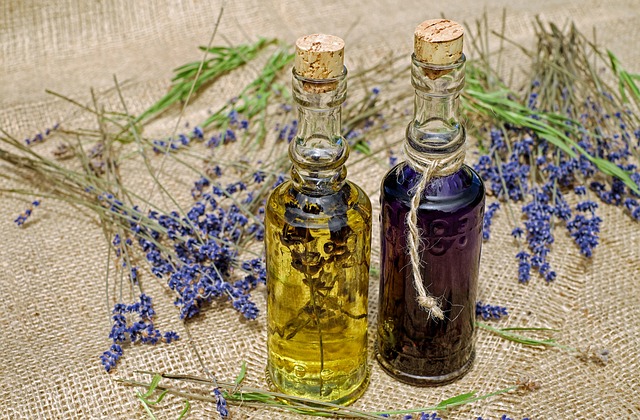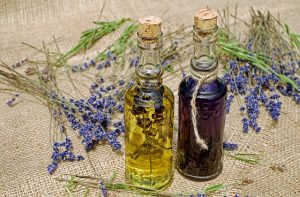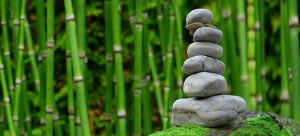
Modern living often distances us from nature, creating a disconnect that can impact our health and well-being. However, by embracing nature’s gifts and crafting our own natural products, we can foster a more harmonious and healthy lifestyle. In this comprehensive guide, we’ll explore the benefits of integrating natural products into your routine, provide step-by-step instructions on how to create them, and offer tips for living in synergy with the world around us.
The Benefits of Natural Products
Why Choose Natural?
Healthier Ingredients
Natural products are typically free from synthetic chemicals, preservatives, and artificial fragrances, which can be harmful or cause allergic reactions. Choosing natural ingredients ensures that what we are putting on our bodies is nourishing and gentle.
Environmental Impact
Creating your own natural products reduces reliance on mass-produced goods, which often come with excessive packaging and long transportation footprints. By using locally-sourced or self-grown ingredients, you contribute to a sustainable and eco-friendly lifestyle.
Personalized Care
Crafting your own products allows you to tailor formulas to your specific needs and preferences, whether it’s customizing the scent of a lotion or creating a herbal remedy that addresses a particular health concern.
Foraging for Ingredients
Knowing What to Pick
Edible Plants and Herbs
Research local edible plants and herbs that can be used in teas, tinctures, and meals. Ensure proper identification to avoid toxic plants. Consider starting a herb garden with staples like mint, basil, and lavender.
Natural Oils and Butters
Discover the wealth of natural oils and butters that serve as excellent bases for skincare products. Coconut oil, shea butter, and almond oil all offer unique benefits, from moisturizing skin to providing essential fatty acids.
Seasonal Bounty
Embrace the seasonal changes and the different plant-based ingredients they bring. June berries, wild garlic in spring, or chestnuts in autumn – each season offers its own treasures.
Crafting Your Own Skincare Products
Creating Natural Skincare
Moisturizers and Lotions
Learn to combine natural oils with herbal infusions to create moisturizers suited to your skin type. Use a double boiler to gently warm the oils and allow herbs like chamomile or calendula to infuse their properties.
Facial Masks and Scrubs
Harness the exfoliating power of ground coffee or sugar in homemade scrubs, or mix clays and activated charcoal for purifying masks. Remember to do patch tests to ensure you don’t have adverse reactions.
Soaps and Bath Products
Soap making can seem daunting, but melt-and-pour soap bases simplify the process. Customize with essential oils and dried flowers for a personal touch. Bath bombs and salts with Epsom or Himalayan pink salt can provide a mineral-rich bathing experience.
Crafting Natural Remedies
Herbal Medicine Basics
Tea Blends
Learn the art of blending teas for both flavor and health benefits. Combine ginger, turmeric, and black pepper for a warming, immune-boosting drink. Dry your herbs to have them on hand year-round.
Tinctures and Syrups
Tinctures are concentrated herbal extracts made with alcohol or glycerin. Syrups, on the other hand, use honey or sugar as a base and often contain extracts from berries or flowers for a natural cough remedy or immune support.
Salves and Balms
For skin irritations or muscle aches, homemade salves and balms can provide relief. Infuse oils with herbs like St. John’s wort or arnica and combine with beeswax for a soothing, medicinal balm.
Creating Natural Home Products
Clean and Green
All-Purpose Cleaners
Vinegar, baking soda, and lemon create effective cleaners without harsh chemicals. Infuse vinegar with citrus peels or herbs for a naturally fragrant solution.
Air Fresheners and Deodorizers
Avoid synthetic fragrances by making your own air fresheners. A simple mixture of water, alcohol, and essential oils in a spray bottle can rejuvenate your living space.
Natural Pest Repellents
Keep pests at bay with natural deterrents like peppermint oil for spiders or neem oil for garden pests. Your home and garden can remain free from unwanted visitors without the use of harmful poisons.
Sustainable Practices and Mindful Consumption
Living Harmoniously with Nature
Reduce, Reuse, Recycle
Incorporate the three R’s into your daily life. Use reusable containers for DIY products, recycle diligently, and be mindful of your consumption habits to minimize waste.
Composting and Gardening
Composting kitchen scraps nourishes your garden, reducing landfill contribution and providing you with rich soil for growing ingredients you’ll use in your natural products.
Sustainable Sourcing
When you can’t grow or forage for your ingredients, choose to support local farmers and ethical suppliers that prioritize sustainability in their practices.
Mindful Integration into Daily Life
Daily Routines and Rituals
Morning and Evening Rituals
Integrate your natural products into morning and night routines, allowing the process of using them to become a grounding ritual that prepares you for the day or for restful sleep.
Conscious Consumerism
Be mindful of your purchases. Opt for products with minimal packaging, or those that align with your values of sustainability and ethical production.
Education and Awareness
Stay informed about the impact of the products and ingredients you use. Share your knowledge with friends and family, and consider teaching workshops or writing about your experiences.
Conclusion
In crafting your own natural products and integrating them into a harmonious lifestyle, you not only nurture your body and mind but also cultivate a deep connection with nature. It’s an investment in personal health and in the sustainability of our planet. Embrace nature’s bounty, revel in the creative process of crafting your own products, and cherish the resulting balance it brings to your life.
Remember, this transition doesn’t have to be overwhelming—start small, savor each step, and let the natural world guide you toward a more balanced, healthy, and fulfilled lifestyle.









dzxceh
hf0krk
ed0gmc
u3wd7f
vswarc
3wtvtj
qb447d
mjtpf4
89yw3k
47drsr
jfuw79
a5ifls
ytlbl9